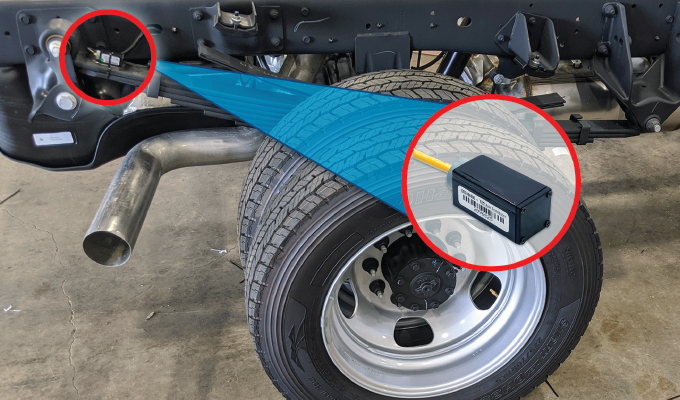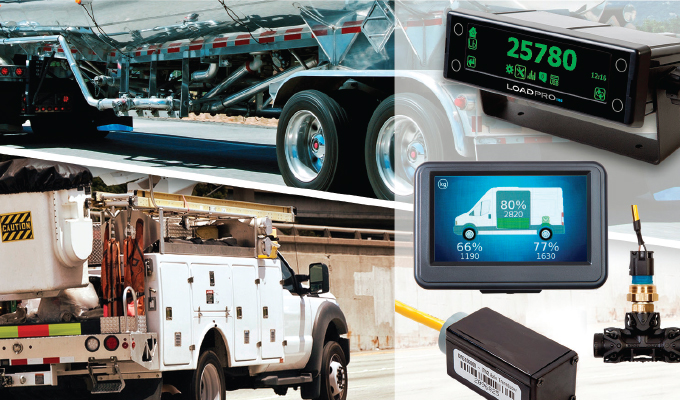By Steve Myers
For any business, maximizing efficiency is key to reducing operating costs and improving profit margins. When transporting goods, the temptation to overload a vehicle in a bid to maximize payload and reduce overall fuel costs can be a costly mistake.
Recently, more and more scrutiny is placed on overweight vehicles. Last year over 8,000 tickets for overweight vehicles were handed out by the DOT. Overweight freight truck incidents have been responsible for property damage, vehicle losses, injuries, and deaths. In addition, there are reports of scams in which accidents with trucks are intentionally caused in order to sue drivers and trucking companies.
WEIGHT LIMITS
The United States first established size and weight limits on commercial trucks in 1913. Since then, regulations have evolved on both the state and federal levels. The goal of these laws was to improve safety on America’s highways by regulating truck weights. Today, the laws are a blend of both state and federal regulations and include provisions for truck type, road type, and certain factors such as transportation infrastructure limits. In general, federal limits on trucks using the interstate system are:
- 80,000 lbs of gross vehicle weight
- 20,000 lbs on a single axle
- 34,000 lbs on a tandem axle or tandem axle group
Any truck over these limits is considered an overweight freight truck. It is important to note that certain states have limits in excess of federal regulations for vehicles on non-interstate highways.
FIVE FACTORS
Commercial trucking companies are expected to deliver goods on time and without damage or loss. These risk exposures sometimes cause trucking companies to try options that may have serious consequences. Taking a hard look at the problems that may arise from overloading trucks can be a sobering experience. Five factors to consider are:
- Drivers of overweight freight trucks can be arrested and may face jail sentences (in excess of two months in certain states). Those drivers may also lose their commercial driver’s licenses.
- Trucking companies, including freight haulers, may face significant financial penalties, ranging into the tens of thousands of dollars. Repeat offenders may be fined with even higher penalties, potentially resulting in expensive insurance claims.
- Overweight trucks may be grounded at weigh stations and not allowed to continue until the excess weight is offloaded. Hence, overweight trucks may, in fact, arrive late to their final destinations, negating any perceived benefits of overloading them in the first place.
- Customer relationships may be damaged through overloading practices. If cargo arrives late through a state- or federally mandated grounding or if cargo is somehow damaged during the overloading process, this can put a damper on hard-earned business relationships.
- Perhaps most importantly, overweight trucks are dangerous. Trucks filled with cargo beyond their rated capacity may cause drivers to lose control of their rigs, especially in hilly terrain or harsh weather conditions. An overloaded truck can cause injury, property damage, or death, again resulting in more expensive insurance claims and even the possibility of legal action against the freight company and its driver.
In short: overweight freight trucks are bad business.

THE SOLUTION
Unlike expensive load cell based systems or welded systems that use flex transducers, deflection sensors, small coil spring or tension wire, Vishay Precision Group, Inc’s (VPG) LoadPro on-vehicle overload protection systems use small, lightweight, rugged, low-cost, solid-state, patented inclinometers. The inclinometers are bonded to a leaf spring, torque rod, or other suspension component with 3M adhesive tape. This inclinometer technology, at very fine sensitivities and high accuracy, measures the angle of the spring when you put a load on the vehicle. Coupled with air pressure transducers, the system can be fitted to virtually any new or existing van, truck, or tractor/trailer combination.
FIT & FORGET
The system is easy to install by your in-house personnel or a VPG distributor without welding, fabrication, or any special tools. Due to its technology, no recalibration is required. Weights are displayed for each axle, axle group, gross vehicle weight, and trailers. Without any driver input, clear visual and audio alarms make it simple to stay within the designed and legal limits of your vehicle. LoadPro also supports modern telematics output to third party GPS and fleet systems.
With 35,000-plus systems installed worldwide, LoadPro is a proven solution and is now available in the USA and Canada.
ABOUT THE AUTHOR
Steve Myers is the sales manager for VPG’s LoadPro. To receive a 30-day LoadPro demo for one fleet vehicle, email loadpro@vpgsensors.com or call 919.219.6471. Find out more, visit www.loadprosystems.com.




